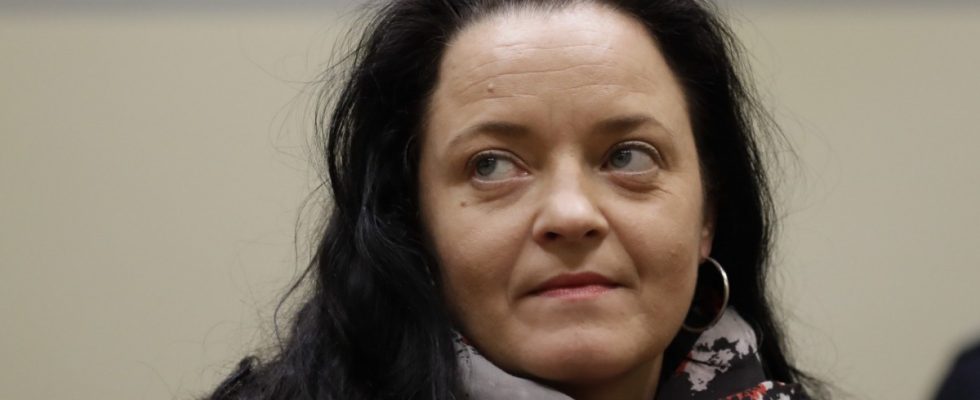The legally convicted right-wing terrorist Beate Zschäpe is to be questioned on May 22 as a witness by the NSU investigative committee of the Bavarian state parliament. However, the survey does not take place in the state parliament, but in the Chemnitz prison, in a non-public session. There will then be an online press conference by committee members and a transcript will be published afterwards. The Bavarian state parliament announced this on Twitter on Monday.
There are no means of forcing Zschäpe to make a statement. The terrorist cell “National Socialist Underground” (NSU) – Zschäpe, Uwe Mundlos and Uwe Böhnhardt – had been murdering Germany for years since 2000. Their victims were nine traders of Turkish and Greek origin and a German policewoman. Mundlos and Böhnhardt also carried out two bomb attacks in Cologne, injuring dozens. The two killed each other in 2011 to avoid being arrested – only then was the NSU exposed.
Zschäpe, the only survivor of the trio, was sentenced to life imprisonment in 2018 after more than five years of trial – as an accomplice, even if there was never any proof that she herself was at one of the crime scenes. The Munich Higher Regional Court also determined the particular severity of the guilt. The Federal Court of Justice (BGH) rejected an appeal by Zschäpe in August 2021. She has been serving her sentence in Chemnitz JVA since 2019.
The aim of the second NSU investigative committee in the state parliament is, among other things, to clarify possible connections of the NSU to the neo-Nazi scene in Bavaria. The deputies are now also hoping for Zschäpe. Bavaria’s Interior Minister Joachim Herrmann (CSU) admitted on Monday as a witness before the committee that “hundreds of questions are still open and unresolved”. For example, after other participants, after possible accomplices on site, after other accomplices, after the selection of the victims by the terrorists.
Regarding the suspicion, also expressed by his predecessor Günther Beckstein (CSU), that the perpetrators must have had local supporters in Nuremberg, among other things, the interior minister said: “From a layman’s point of view, there is a lot to be said for it – but there is no concrete evidence .” He added that he also hoped that Zschäpe’s interrogation would provide results on this.
In the NSU trial, Zschäpe made written statements and spoke twice himself. In writing, she admitted that she knew about the bank robberies of her friends Mundlos and Böhnhardt and that she set fire to the trio’s last refugee apartment in Zwickau, Saxony. But she only claims to have found out about the murders and attacks afterwards. She later said in a brief statement that she regrets her “misconduct” and that she condemns what Mundlos and Böhnhardt “did to” the victims. The Munich Higher Regional Court, on the other hand, followed the argumentation of the federal prosecutor’s office: Zschäpe very well “knew everything, supported everything and helped to control and achieve things in her own way”.

